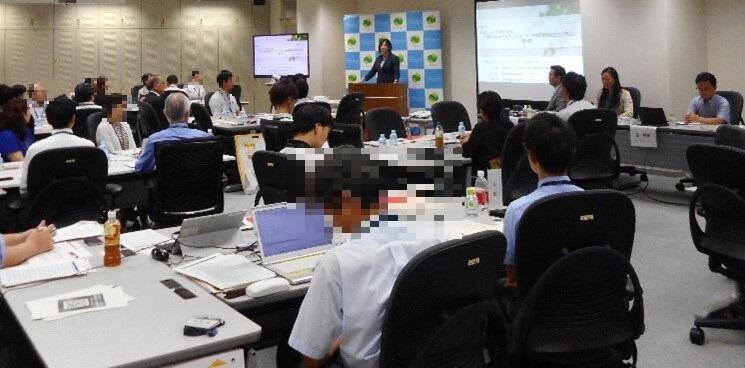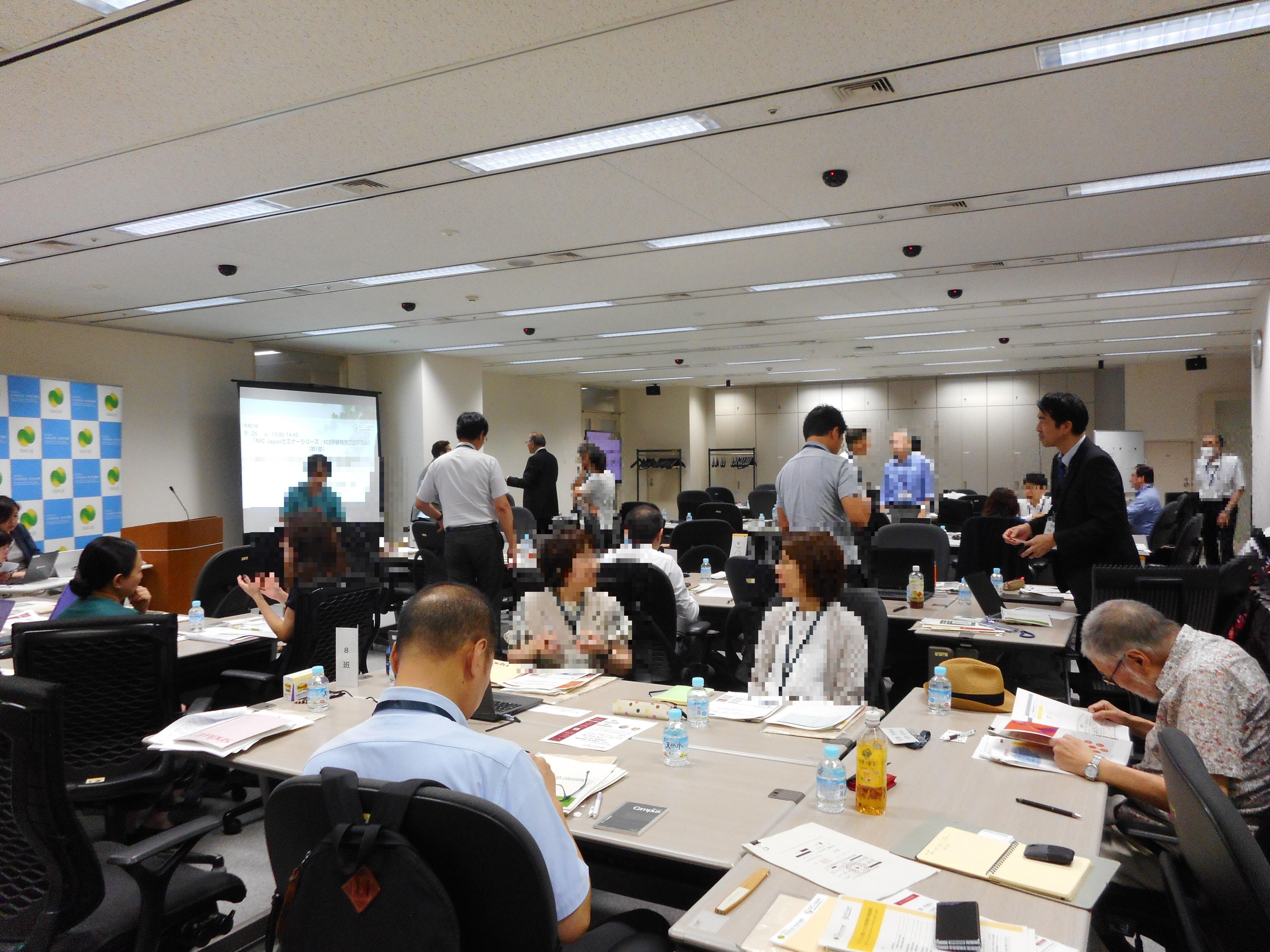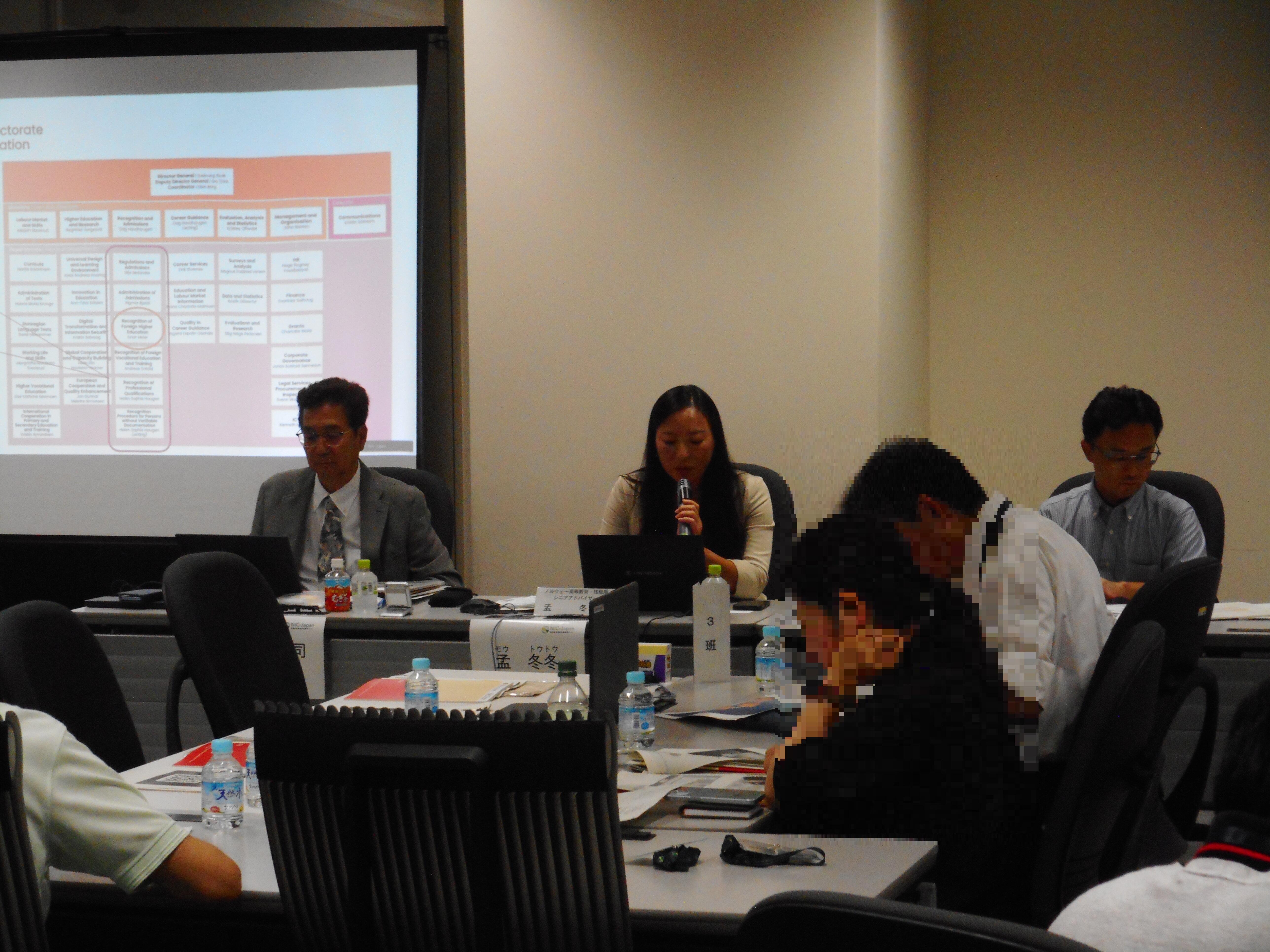Report: NIC-Japan Seminar Series: Foreign Credential Evaluation (FCE) Training Special Program
Activities
※The materials used in this program can be downloaded from the following link.
"FCE (Foreign Credential Evaluation) Training Special Program (September 26, 2025)" (Presentation material: 01, 02, 03) (In Japanese)
The video of this seminar (in Japanese) is available on YouTube until the end of March 2026.
In addition, the announcement page during registration period for the seminar can be viewed here.
The National Information Center for Academic Recognition Japan (NIC-Japan) held a program entitled "Foreign Credential Evaluation (FCE) Training Special Program" on Friday, September 26, 2025.
As part of its activities to provide information that contributes to the smooth recognition of higher education qualifications for the purpose of improving the international mobility of students and academics, NIC-Japan has been holding the "NIC-Japan Seminar Series" since 2021. Each seminar features presentations by domestic and international experts on various topics related to recognition of foreign qualifications, including examples of overseas education systems and procedures for qualification evaluation.
This year, for the first time, the event was held in two formats: Part 1 in a hybrid format and Part 2 as an in-person workshop. Approximately 320 participants joined Part 1 both online and onsite, while 35 participants from higher education institutions and other organizations in Japan took part in Part 2, which was conducted onsite.
<Purpose of the Program>
NIC-Japan organized the FCE Special Training Program as Japan's first large-scale training program aimed at developing "foreign credential evaluators" - faculty and staff members at universities and colleges responsible for evaluating foreign academic credentials and the qualifications in the admissions and application screening of applicants with overseas educational backgrounds.The program was designed to support the training of professional staff specifically capable of (1) understanding the concept of the World Convention and the Tokyo Convention, (2) understanding relevant laws and regulations including the School Education Act, and (3) applying appropriate procedures and methods to the evaluation of foreign qualifications. Through this program, NIC-Japan hopes to create an opportunity to establish a sustainable platform for information exchange among foreign qualification evaluators in Japan, with a particular focus on the program participants.
 |
|
At the Venue |
 |
|
Networking Session |
 |
|
Question and Answer Session |
<Overview> Part 1 (hybrid format)
▷Session 1: Survey on the Operations of Foreign Credential Evaluation at Japanese Universities
Speaker: HOTTA Taiji (Senior Advisor, NIC-Japan)
Dr. HOTTA Taiji, Senior Advisor of NIC-Japan, presented the results of a survey on the credential evaluation of international applicants and pointed out the challenges in the screening systems implemented by Japanese universities. He proposed the following measures: (1) developing guidelines, (2) institutionalizing personnel training, (3) strengthening external support, and (4) establishing inter-university networks. He further emphasized the importance of improving transparency, reproducibility, and explainability, while reducing misunderstandings and delays, and highlighted the need for a shared understanding throughout the higher education sector.
▷Session 2: Overview and Key Challenges in the Field of FCE in Asian Countries
Speaker: MENG Dongdong (Senior Advisor, Norwegian Directorate for Higher Education and Skills [HK-dir])
Ms. MENG Dongdong, Senior Advisor of HK-dir, first provided an overview of her organization, HK-dir, which serves as Norway's NIC, and then gave a detailed explanation of the application documents and qualifications submitted by students from the "international departments" of public high schools and from private "international" high schools in China. She also shared insights into the current situation in China by showing the recent increase in the number of such applicants. Next, Ms. MENG introduced various methods for verifying the authenticity of supporting documents. Emphasis was placed on the importance of not only verifying the authenticity of the certificate but also confirming the official government accreditation of the degree-awarding educational institution and program. She then shared examples of fake degree certificates that had been submitted and explained key points for distinguishing genuine certificates from fake ones. The participants expressed surprise and confusion at these examples.
▷Session 3: Overview and Key Challenges in the Field of FCE in Japan
Speaker: HOSHI Akihiro (Chief, International Education Support Department, The Asian Student Cultural Association [ABK])
Mr. HOSHI Akihiro, Chief of the International Education Support Department at ABK, explained that ABK primarily supports the evaluation of academic qualifications of international students. Commissioned by 13 universities in Japan, ABK handles approximately 200 cases annually. He also mentioned that ABK undertakes application processing services, handling about 2,000 applications from international students per year. Next, Mr. HOSHI shared examples of transcripts and diploma supplements issued by foreign universities and explained the importance of determining university entrance qualifications with reference to the School Education Act. Additionally, he summarized the current challenges faced in Japan, emphasizing the need to raise awareness of the importance of FCE, create a database of cases, and establish a network and platform to facilitate information sharing.
▷Q&A Session (Moderator: MORI Rie, the Executive Director, NIC-Japan)
Speakers: MENG Dongdong (HK-dir), HOSHI Akihiro (ABK), and HOTTA Taiji (Senior Advisor, NIC-Japan)
Online and in-person participants submitted many questions using the question form, and the speakers provided answers. There were many questions about the complex Chinese education system, and Ms. MENG answered each carefully. Participants also asked whether there was a comprehensive and up-to-date database on education systems and qualifications around the world. Mr. HOSHI and Dr. HOTTA explained that no such database exists, given the frequency at which national education systems undergo change. They emphasized the need to re-investigate each case to confirm the latest information, even if a similar case had been investigated before.
<Part 2> (in-person workshop)
Participants were divided into eight groups for an in-person workshop. In Session 4, they practiced FCE through case studies involving various certificates from countries such as China and Vietnam. In Session 5, participants exchanged opinions on the status and challenges of FCE at their respective universities. Lively discussions were held, aimed at improving FCE.
▷Session 4: Workshop: FCE Case Studies of China, Vietnam, Myanmar, Nepal, etc.
Speaker: MENG Dongdong (Senior Advisor, HK-dir)
Commentator: HOTTA Taiji (Senior Advisor, NIC-Japan)
Ms. MENG began by explaining procedures for FCE at HK-dir. Her explanation also covered points to note for verification and useful information sources. This was followed by an explanation of the Chinese education system, higher education in China, and the national entrance examinations (Huikao and Gaokao). Next, graduation and degree certificates from countries such as China, Vietnam, and Nepal were used in an exercise requiring each group to verify the documents according to the specified checkpoints, while engaging in related discussion.
▷Session 5: Group Discussion on Challenges and Problems of FCE and Potential Solutions
Moderator: HOTTA Taiji (Senior Advisor, NIC-Japan)
Participant groups exchanged opinions on how to improve recurrent challenging situations related to FCE. They focused on the requirements at their respective universities and on the aspects they felt needed to be addressed systemically. The subsequent general discussion covered issues such as the need for human resource development and information sharing, a lack of understanding of the system, and challenges related to operational continuity. The need to establish networks and secure specialized personnel was also emphasized.
<Concluding Remarks> (MORI Rie, the Executive Director, NIC-Japan)
Professor MORI Rie, the Executive Director of NIC-Japan, closed by summarizing three key takeaways from the FCE Special Training Program: (1) the importance of information, (2) the importance of detailed information, including exceptions, and (3) the understanding that education systems are constantly changing. She highlighted the lack of awareness in the Japanese higher education sector regarding issues related to FCE, and emphasized that this, along with the insufficient understanding of its importance, should be recognized as a problem. Therefore, it is imperative to increase the number of university personnel who understand the importance of FCE and can handle related matters appropriately.
